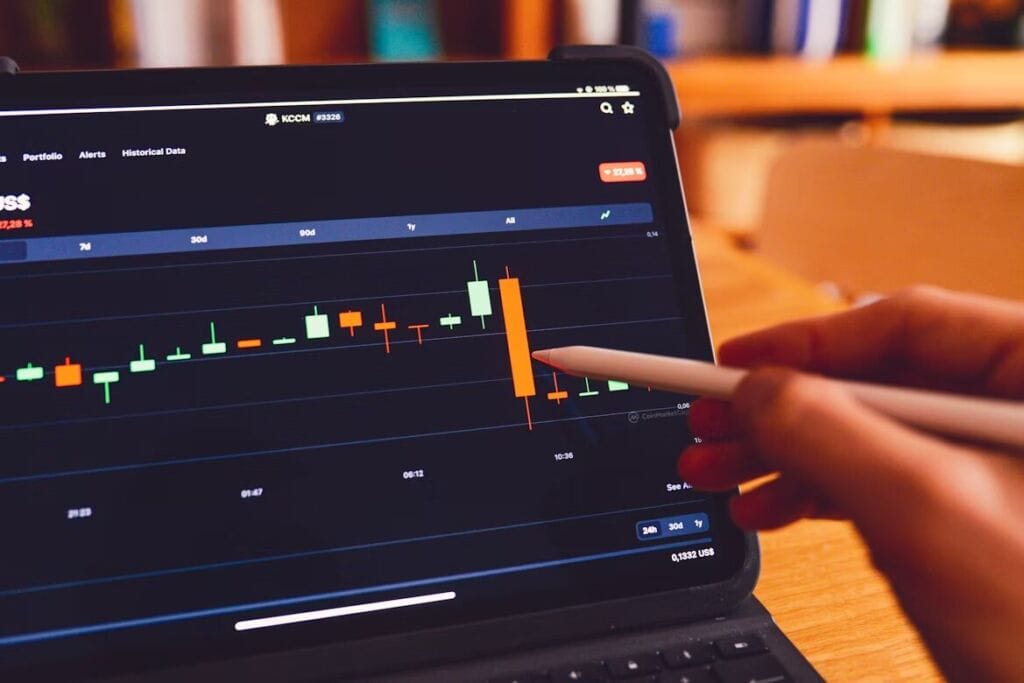Money is changing. You’re probably noticing this change yourself. A decreasing number of people carry cash, and even a credit card seems vintage compared to what comes next — crypto. For years, the world has been pondering whether crypto is real or just hype, whether it is in the works or merely hype. But something happened along the way, and now even large corporations have Bitcoin on their balance sheets. Countries are experimenting with digital currencies, and people are finding ways to use crypto that have nothing to do with getting rich quickly.
So talk about crypto has gone beyond speculation. The priority now lies in its usefulness for improving one’s financial life, protecting privacy, and increasing control over money matters.

Grabbing the Reins on Finances
Banks have always been the necessary intermediary between you and your cash. They hold the money, approve or disapprove transactions based on their own guidelines, and, when they suspect something is suspicious, can freeze or shut down your accounts. With crypto, this layer of control is stripped away, and power returns to where it should be: with you. For example, when you hold Bitcoin and Ethereum in your own wallets, you are the ultimate authority on that money, and no bank can tell you a guideline that says you can’t do what you want with the money you have legitimately earned.
This matters far more than most people realize until they experience a problem. Major banks experience frequent system failures, which often lock customers out of their accounts for several days. In those cases, people usually end up unable to pay bills or buy groceries because a server or device failed somewhere. With crypto in your own wallet, you are no longer dependent on the infrastructure of the company you deal with being online. Your ability to transact does not depend on whether a bank is open or not, or whether it is a holiday or weekend.
Privacy in an Age of Surveillance
Every time you swipe your card or tap your phone to pay for something, you create a data trail that someone is watching and recording. Banks know exactly where you shop, what you buy, and when you make every single purchase. They aggregate this data, sell it to advertisers, and hand it over to authorities without notifying you. Your financial life becomes an open book that dozens of companies and government agencies can read whenever they want.
Crypto offers a fundamentally different approach to financial privacy. While Bitcoin transactions do appear on a public ledger, they don’t automatically link to your real-world identity the way credit card purchases do. You can receive payments, make purchases, and store value without broadcasting your personal information to every company in the transaction chain. This feature alone justifies taking the time to learn how to get Bitcoin anonymously without ID and integrate it into their everyday transactions.
Consider it this way—physical money gave you total anonymity in your transactions, but it is rapidly disappearing from the general population. Crypto gives that back to you in a way that really works in the digital world we live in now. You’re not trying to hide something criminal; you want the same kind of basic anonymity that your grandparents had when they bought things with paper money.
Sending Money Across Borders
The way traditional banks conduct international transactions has gotten stuck in the past. These transfers have high fees, long wait times, and unfavorable exchange rates that favor banks. If you’ve ever sent money to relatives in another country, you know all about how frustrating it is to see all the fees take away a large portion of what you are trying to send.
Crypto solves each of these issues without compromising security. You can send Bitcoin to someone in the Philippines, Nigeria, or Germany in minutes, and the fees are usually only a few dollars per transaction, regardless of whether you are sending $100 or $10,000. Your recipient receives the funds in less than 1 hour, not after 3 to 5 business days of unexplained delays. To put it simply, you cut out the middleman.
In 2025, millions of people around the globe are sending crypto for remittances because it is provably faster and infinitely cheaper than traditional services like Western Union or international bank transfers. Countries like El Salvador have made Bitcoin legal tender because of the enormous savings their citizens enjoy on transfer fees when sending earnings back home. When you regularly send money to help your relatives survive, saving 10% or more on each transaction is not a minor convenience but life-changing money that stays in the family.
Protection Against Inflation
Your savings lose purchasing power every year, eroded by inflation created by governments through their monetary policies. The interest rates banks offer on savings accounts don’t come anywhere close to keeping pace with real inflation, which means you’re effectively losing money just by saving it the traditional way. In countries with unstable currencies, this problem becomes severe enough to destroy lives, as people watch their lifetime savings evaporate when their government decides to print unlimited money.
Bitcoin operates under different rules because its supply is fixed by design. Only 21 million Bitcoins will ever exist, and no government can print more when they feel political pressure. This fundamental scarcity makes it function like digital gold, holding and often increasing its value over time instead of steadily losing purchasing power. While the price bounces around day to day, the long-term trend has consistently moved upward as more people recognize this property.
Naturally, you don’t need to convert all your savings into crypto. But holding some portion of your wealth in an asset that can’t be inflated away gives you protection that cash in a bank account fundamentally cannot provide. Many financial advisors who previously dismissed crypto now recommend allocating a small percentage of your portfolio to it for exactly this reason.

Conclusion
The adoption of crypto is not a trend or a way to make a quick buck. It is the realization that there are now financial tools available that gives us greater control over our money than we have ever had, that we have better privacy protection than we have ever had, and that we have access to systems that work for our benefit.
The technology has been developed to the point that average people can use it effectively without being IT specialists. Suppose you are looking to protect your savings against inflation, make international money transfers without losing big chunks of it, or reclaim basic privacy in an age when all our transactions are tracked. In that case, crypto offers practical solutions worth serious consideration.




